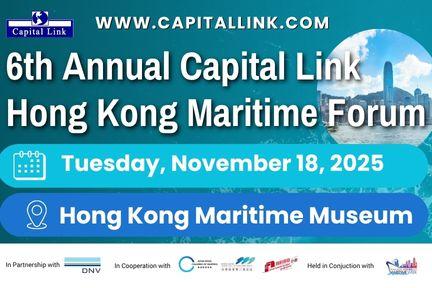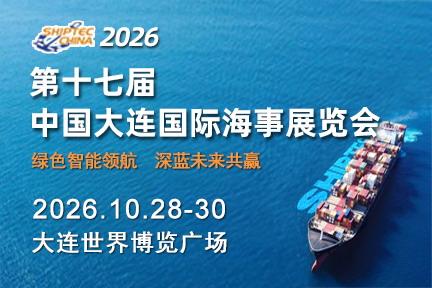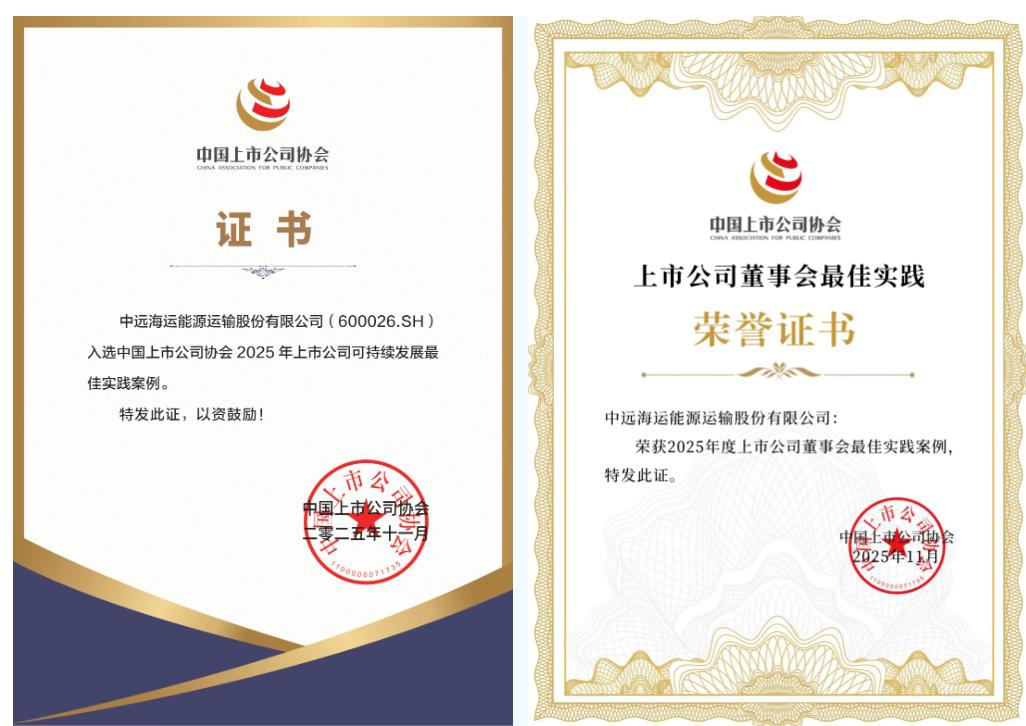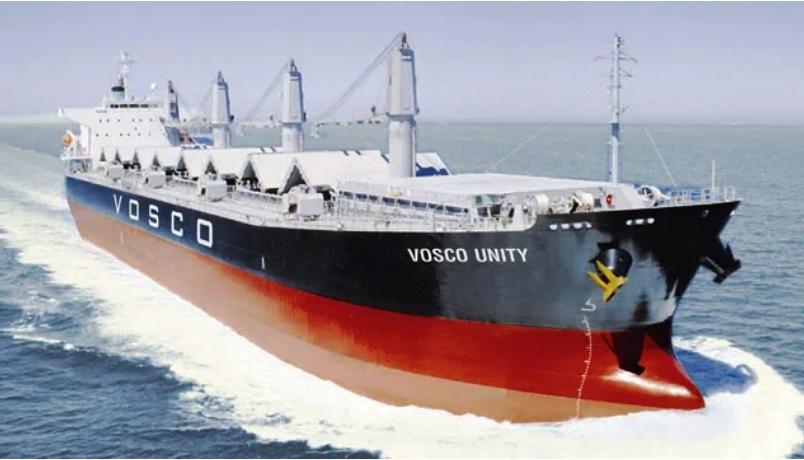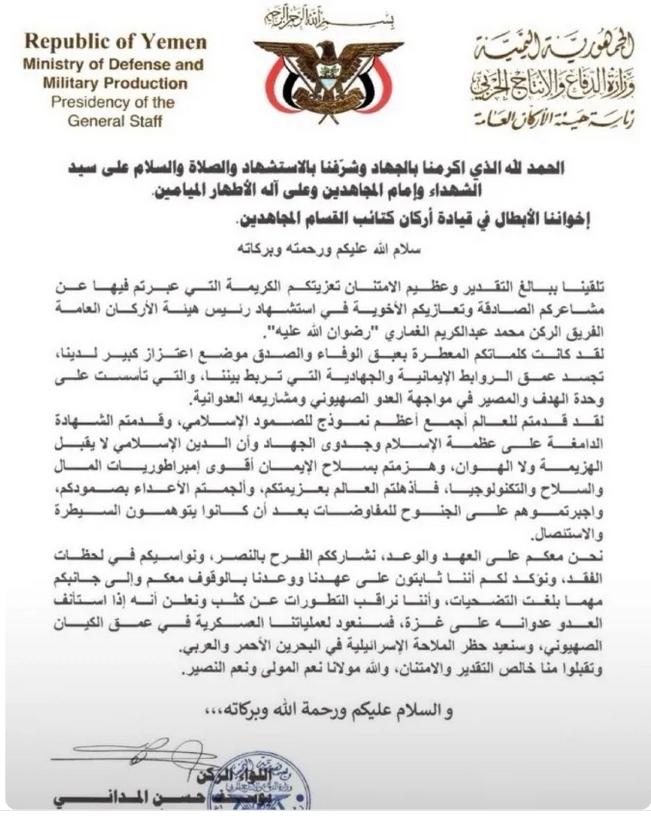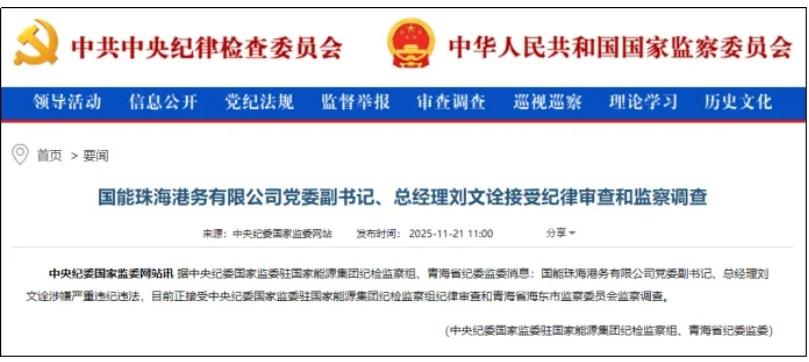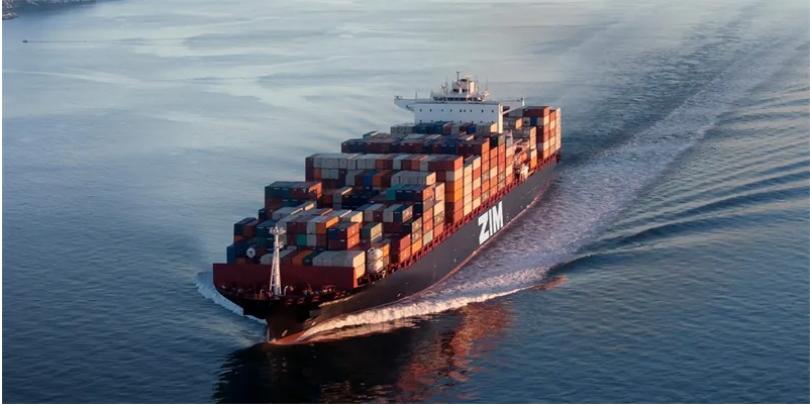【关键词】例外条款、免责、安全港口、索赔
在航运实务中,关于laytime计算的争议非常多。早前介绍的关于港口安全方面的文章,也涉及了laytime计算的问题。如果港口是安全的,那么承租人未违约,因此受台风影响无法进行相关作业,包括封港封航等,承租人势必主张这些延误属于坏天气,不是weatherworking day,因此需扣除不算装卸时间。但是如果承租人违反了港口安全方面的保证,那么这些损失就变得可追偿,承租人得因为违反港口安全保证,赔偿出租人损失。当然,如果租船合同中,承租人未作出安全保证,那么损失将由出租人自行承担。
然而,租船合同的拟定因人而异,所拟定的条款受限制专业水平高低,或者当事方不处于同一水平线上,那么拟定的条款将很可能非常不公平。但是如Sumption勋爵所说,商业合同和公平性无关,很可能是最不公平的。商场如战场,条款和阵地一样,是你争我夺的过程。举个例子,比如在日常中见到的如下条款:
THE SHIPMENT WILL BE DEEMED TOBE A FULL AND COMPLETE CARGO, EVEN IF THE VESSEL IS NOT LOADED DOWN TO HERMARKS BY REASON OF DRAFT RESTRICTIONS ATLOADING OR DISCHARGING PORT(S).
该条款规定,该载货物将被视为满舱满载货物,即使由于装港或卸港由于吃水限制的原因导致无法装到船舶水尺。
很多港口是潮汐港口,可能是半日潮或全日潮,比如澳大利亚的黑德兰港,就是非常典型的受潮汐影响的港口。船舶装载的货物受当日最大开航吃水MSD(MaximumSailing Draft)影响,如果当日的MSD差,对于17万吨,或者20万吨的船而言,可能少装货上万吨,影响巨大。此时,承租人就依赖该条款来寻求免责,认为装不到最大货量的原因是由于港口吃水的限制,所以无需承担亏舱费。笔者认为承租人依赖此条款并不能成立,黑德兰港对于20万吨级别的船来说,并不是有吃水限制的港口,这和长江内的港口完全不一样。和安全港口一样,短暂需借助潮水离港并不会构造港口不安全;黑德兰港下个潮汐或者过几天就有合适的潮水,因此这种短暂受潮汐影响并不会构成黑德兰是个有吃水限制的港口。但是如果无论如何,船舶需要借助减载才能靠泊的话,将导致港口不安全。同理,如果一条20万的船,满载吃水18.3米,结果满载装到18.3米,然后无论如何都无法离开黑德兰港口,那么这种情况下,就可以说黑德兰港对于该20万吨的船是个有吃水限制的港口。因为一旦装到18.3米,将导致船舶无法离港。
回到该条款来,对于出租人风险最大的地方是,卸港问题。假如承租人因为货物问题,完全可以安排这种20万吨的船,到长江内的港口,比如太仓或者南通,或江阴卸货,而此时,太仓,南通或江阴对于这种20万吨级别的船而言,都是有吃水限制的港口。如果承租人安排到这些港口卸货,而导致船舶无法装到满舱满载货物,承租人将无需承担亏舱费。所以,该条款对于出租人而言,将存在巨大的风险。
在如今货方的市场下,尤其是散货板块,对于BHPB,VALE, RIO TINTO, FMG等几大货主,出租人对于他们的合同条款,可以说霸王条款应该给予充分的注意,否则一旦出现争议,出租人将处于非常被动的局面。相反,对于小船市场,租船合同非常简单,可能就2页租船合同确认书,或者加一个并入的GENCON94,或者NYPE46或NYPE93。这种简陋的租船合同,如果什么都没规定,那么解释起来往往对出租人比较有利。
在一涉及laytime计算争议的程租合同中,该份合同拟定的非常简单,但是并入了GENCON94。船舶到菲律宾卸货,其中有一天工班取消,因为预计可能会下雨,但实际上最终并没有下雨。收货人事后认为,大副已经同意解除工班,所以这一天的时间得扣除不算laytime,声称这个和下雨或预计下雨有关。
出租人前来咨询并寻求帮助,笔者于是草拟如下电邮:
Thanks for charterers’ last, but regret that Owners could not accept charterers’ allegation.
As per clause of 5. Loading/Discharging, Gencon94 form which was
incorporated in this charterparty, Where provides:
The cargo shall be brought into the holds, loaded, stowed and/or trimmed,
tallied, lashed and/or secured and taken from the holds and discharged by the Charterers, free of any risk, liability and expenses whatsoever to the Owners…
There is no any disputed that the charterers should hold whole responsible for loading/discharging at their time/cost. Charterers contended that chief officers accept to dismiss shore gang which Owners denied.
Chief Officer accept but still not relieve charterers’ obligation to load/discharge which are charterers’ responsibility.
On the other hand, refer to Latest 7th Edition《Laytime and Demurrage》Chapter 1-General Principles, 1.30 where provides as below. For easy reference, Owners have put in italics and highlighted.
1.30 Once commenced, laytime will continue to run until loading (or discharging) has been completed,
And 1.28 provides:
1.28 Once laytime has commenced to run it may nevertheless be suspended either by an interruption or an exception to laytime.
There is no any express provision in the charter to interrupt the running of
laytime, Hence that those period still should to count as laytime in full.
Hope above are clear and will be acceptable by the charterers.
首先依据GENCON94格式的第5条装卸货条款,装卸货得承租人负责,时间费用都是承租人的;其次,Laytime一经起算不会自动终止,除非租船合同中已经有列明的例外可不算装卸时间,而该租船合同未规定任何例外条款。因此和大副同意不同意解除工班并没有关系,因为在该合同下,装卸货得承租人来安排。但是如果实际上下雨了,那么下雨导致无法作业,不属于weather working day,就可以扣除不算装卸作业时间。
在这个例子中,如果实际上下雨了,作为合同的恰当解释,虽然不属于列明的例外事项可以中断laytime计算,但是承租人可以依赖装卸率条款中的weather workingday该措辞,来扣除不算装卸时间。但是如果实际上并没有下雨,那么即没有列明例外条款,也属于weather working day,承租人就无权再主张停止计算laytime。
又比如,有人碰到国庆长假期间,星期六星期天到底是否计算laytime的问题,租船合同规定卸率是“1500MT SSHEX EIU ”。因为国庆长假,9月29日,30日调休(星期六,星期天),但是中国政府规定是工作日,调休到10月4日,5日。争议是这两天作业算不算laytime。承租人主张不算,出租人前来咨询。笔者认为,虽然该条款的措辞没有加working day,或者weather working day之类的,但是因为有“SSHEXEIU”这个后缀,“Saturdays,Sundays and Holidays excluded, Even if used.”该后缀已经非常清晰明确,星期六,星期天和节假日例外,即使使用。9月29日, 30日虽然调休,但并不改变这两天属于星期六合星期天的属性,所以和是否正常上班并没有关系,因此承租人主张有理,需扣除不算装卸时间。除非该后缀改为“SSHEX UU”,“Saturdays, Sundays andHolidays excluded, Unless used”,那么情况将不一样,变成了,星期六,星期天和节假日例外,除非使用。那么在该后缀下,周末节假日期间经行作业所使用的时间就必须计算装卸时间。
作为谨慎的船东,应该考虑到方方面面的问题,如果通过加速提早抵达能在节假日来临之前进入滞期的话,那么应该指示船长加速,及早递交有效的NOR开始起算laytime。当然这里也得考虑到船期成本,滞期费率及加速需多耗燃油的成本,通过比对采取最有经济效益的方式。如果在进入滞期之后在遇到周末节假日,那么除非合同另有约定,即使进入滞期也扣除不算,否则都得正常计算装卸时间。关于滞期的基本原则是,“Once demurrage, always on demurrage” ,一旦滞期永远滞期。如无相反规定,则租约中通常的例外条款通通不适用,都得正常算装卸时间。
可参JohnSchofield的《Laytime andDemurrage》Chapter1-General principles:
1.36 A phrase much used with regard todemurrage is “ once demurrage, always on demurrage”. What this is intended tosignify is that demurrage is payable on a running day basis; and that laytimeexceptions do not apply once demurrage commences. It will take very clear wordto convince a court that the parties intended a particular exception to applyonce the vessel is on demurrage.
在The “Spalmatori” [1962]2 Lloyd’s Rep 175案中,上议院的Reid勋爵在第182页判决书中说到如下:
But ifit occurs after demurrage has begun to accrue the owners might well say:“ Trueyour breach of contract in detaining my ship after the end of the laytime didnot cause the strike, but if you had fulfilled your contract the strike wouldhave caused no loss because my ship would have been on high seas before itbegan: so it is more reasonable that you should bear the loss than that Ishould.”
但如果在滞期费开始累积之后发生,那么出租人可能会说:“在装卸时间结束后滞留我的船舶违反合同并不会导致罢工,但如果你履行了合同,罢工就不会造成损失,因为我的船在它开始之前就已经在公海上了:所以你应该承担损失比我应该承担更合理。”
在IslamicRepublic of Iran Shipping Lines v. Ierax Shipping Co.[1991] Lloyd’s Rep. 81 案中,Hobhouse 法官在第87页判决书中说到:众所周知,合同条款可以通过多种方式影响这种情况。它们会影响到装卸时间的定义,例如,“天气适宜工作日”表示您只计算允许的装卸作业时间的那一类。然后可能存在装卸作业时间例外,这些例外规定在某个时期内不计算装卸时间,即使相关时期在停工的定义范围内。所有这些类型的条款都规定了义务,因此回答了是否存在违约的问题,而不是是否存在违约责任。在装卸时间结束后,它们不会影响滞期费的责任。
It is well established that contractual provisions can impinge upon this situation in anumber of ways. They can affect the definition of the laytime; for example theexpression "weather working days" means that you only count thatcategory of day when calculating the laytime allowed. Then there may be laytimeexceptions which provide that time is not to count during some period eventhough the relevant period would otherwise be within the definition of thelaydays. All these types of provision define the obligation and thereforeanswer the question whether or not there has been a breach, not whether thereis any liability for a breach. They do not affect the liability to demurrage after the laytime has been exhausted.
承租人如果想依赖这种例外来免除责任的话,那么这些条款的措辞应该异常清晰明确。回过头来看前文说到的条款,很显然该条款不够清晰明确。条款前半部分说该载货物视为满舱满载货物,对于“fulland complete cargo”的解释问题,之前文章已经详细解释过,不在此重复。因此如果船舶没有装到船长所宣载的货量,那么就不得视为满舱满载货物。当然中铁矿不存在满舱的情况,和积载因素大的货物情况不一样,这不是重点。条款后半部说吃水限制,但如前文说过,黑德兰并不是对于20万吨的船有吃水限制的港口,如果船舶是40万吨的,那么该港口对于这种船而言,将是一个有吃水限制的港口。
THE SHIPMENT WILL BE DEEMED TOBE A FULL AND COMPLETE CARGO, EVEN IF THE VESSEL IS NOT LOADED DOWN TO HERMARKS BY REASON OF DRAFT RESTRICTIONS AT LOADING OR DISCHARGING PORT(S).
在该合同中,再来看第8条规定:
1-2 SBS 1-2SPS WESTERN AUSTRALIA
即1-2 safe berths,1-2 safe ports, Western Australia;非常典型的安全泊位和安全港口保证。那么来参《Voyage Charters》,6.11:
Draft restrictions, harbours with bars
6.11When the vessel is unable to load the agreed quantity of cargo as a result of a bar or other draft restriction, which party must bear the consequence, including the cost of lighterage if the problem is overcome by that method, depends on theterms of the charter as a whole. If the charterers have given an express or implied warranty as to the safety of the port, the risk will prima facie fall upon them, although this risk is often qualified by a warranty given by owners as to the vessel’s draft. In the absence of a warranty ofsafety, however, it would seem in principle that the risk will fall primafacie upon the owners. In Soc. Maritime v. African & Eastern TradeCo., where the charter provided for loading at one or more of three named ports in thecharterers’ option, it was held that neither party was in breach when the vessel was unable toload a full and complete cargoat the single nominated port.
如果船舶由于潮水货其它吃水限制而无法装到所约定的货量时,哪一方必须承担后果,包括驳运费用,则取决于整个租船合同的条款。如果承租人已经对港口安全作出了明示或者默示的保证,则该风险初步落在他们身上。
因此结合前后条款,承租人还是得承担亏舱费,因为在租船合同中,承租人已经作出了明确的港口安全保证。该承租人如果想不承担的话,应该以更明确的措辞说明,同时也可以如其他承租人一样,把安全港口保证从租船合同中删除,而仅仅保证泊位安全。
以下为其中一封电邮,承租人似乎找不到合适的理由来反驳。
It’s well andlong established to the contract should be construed as a whole. For charterers’ easy reference, Owners wish to clarify again why the charterers should hold whole responsible for deadfreight.
1、 The clauseof 4 which including the wording “…THE SHIPMENT WILL BE DEEMED TO BE A FULL AND COMPLETE CARGO…”,
In respect of legal meaning of “Full and complete cargo”, The charterers may review Owners’ last message carefully. The charterers fail to provide full and complete cargo for the vessel under V.13, and therefore the charterers should pay deadfreight.
2、Pursuant to provision of 8 Load Port(s), which reads:
1-2 SBS 1-2 SPS WESTERN AUSTRALIA
It’s no any dispute that the vessel only could be loaded at 1-2 safe berth(s), 1-2 safe port(s) Western Australia, This clause should be construed as well known safe port warranty.
On the authority of leading case AIC Ltd v Marine Pilot Ltd [2008] EWCA Civ 175 (07 March2008) ,The “Archimidis” , The charterers may put them in breach safe port warranty if they not yet arranged floating barge to load full cargo for the vessel or stay at berth to wait for next suitable tide. In this case, As the arbitrators held that :
The charterers had two ways in which they could furnish a full cargo to the vessel, either by loading some 67,000 mt at theberth, proceeding down the channel and thereafter loading the remainderby STS cargo or by loading the full cargo at the berth: paragraphs 27-29 and 32.
Which Sir Anthony Clarke MR upheld in court of appeal, Where he said:
In my judgment there is no principle of construction which permits a negative answer to the general question raised bythis ground. There is no inherent inconsistency between a safe port warranty and a named loading or discharging port.
In conclusion, Sir Anthony Clarke MR dismiss the charterers’ appeal, The charterers are liable for dead freight for their breach safe port warranty.
I would not accept Mr Berry's submission that there could not be abreach of the safe port warranty in this case. However, whetherthere was such a breach is or would be a matter for the arbitrators to be determined by finding the facts and by applying the relevant principles to thefacts found. It may well be that, in the light of our conclusions on the deadfreight issue, this will not be a live issue. However, if it is, I agreewith the judge (and the arbitrators) that one question for consideration, nodoubt among others, will be whether the weather and the consequential siltingup of the channel, which led to the draft restrictions, was an "abnormal occurrence" since, if it was, it is accepted by the owners that the charterers would not be in breach of the warranty. Likewise, as the judge observed,it is or would be for the arbitrators to decide whether, in the circumstances,the charterers were entitled to rely, in the events which happened, upon theexclusion clause in clause 19 of the charterparty relating to "perils ofthe seas", which I have quoted above.
For the reasons I have given, I would allow the owners' appeal on the deadfreight point and reinstate declaration (iii) quotedat [2] above and I would dismiss the charterers' appeal on the safeport issue and leave declaration (iv), also quoted at [2] above, as it stands.
In our case, The sailing draft restriction was not an abnormal occurence, Charterers should arrange the vessel to stay at berth to wait for next suitable tide to load full and complete cargo. But the charterers require the vessel to sail for their own purpose, Thus the charterers put them in breach safe port warranty and should pay deadfreight accordingly.
The Charterers may also referto 《Voyage Charters》Chaper6-The Cargo,6.11:
Draft restrictions, harbours with bars
6.11 When the vessel is unable toload the agreed quantity of cargo as a result of a bar or other draftrestriction, which party must bear the consequence, including the cost oflighterage if the problem is overcome by that method, depends on the terms ofthe charter as a whole. If the charterers have given an express or impliedwarranty as to the safety of the port, the risk will prima facie fall uponthem, although this risk is often qualified by a warranty given by owners as to the vessel’s draft.
3、 The charterers may contended that sailing instruction was from shipper, but as The“Arctic Trader” case, Where Lord Justice Evans said:
It is clear,in our judgment, that when the time charterer instructs the master, pursuant tothe employment provisions of clause 8, to receive certain cargo on board, andthe cargo is loaded at the charterer’s expense, although under the supervisionand maybe at the risk of the shipowner, then the cargo is loaded by or onbehalf of the charterer for the purposes of the charter-party, and a third party shipper should be regarded as the charterer’s agent accordingly.
Shipper should be regarded as the charterers’ agent, therefore the charterers still should hold whole responsible for their arrangement.
4、 In The“Johnny K”case, In this cae, Justice Tomlinson remit the award to arbitratorand held that the charterers should hold whole responsible for dead freight.
Although the arbitrators refer in four places to the order to sail having been given by the port authorities the position is confused by their also referring on twooccasions to the relevant order as emanating from the terminal/port authorities. Furthermore the fact that the order may have been given by theport authority is not in itself determinative of the question whether it is anorder for which the charterers are responsible. The order may for example have been inspired by the shippers although in fact given by the port authority. If the order was in factgiven by the terminal and if by the terminal is meant BHP then it is conceded that the award cannot stand, the reason being that that would be an order forwhich the charterers are responsible.
BHPB fail in this case and was held responsible for deadfreight.Trust should be the same situation in our case, On authority of The “Johnny K”case, Charterers will be held responsible for deadfreight.
Basis all reasons given above, Charterers please confirm they will pay deadfreight accordingly.
Master also reading this in copy, Please always issue letter ofprotect in case will short load than max cargo if no draft restriction.
作为一个有文化的流氓,首先不管如何,要在字数上压倒对方。所以想当流氓,必须会写长长的电邮,旁征博引,在气势上先占据绝对高度。当然对方也可能会认为是在胡说八道,但想要拿出反驳的证据出来,似乎很难。说到让对方无话可以,就已经赢了;不管结局如何,过程最重要。我可以为了友好合作关系让你,但不能说我坑你。所以当律师一定要流氓,为了你的当事人,在不损害公平正义的前提下,把死的说成活的,同时也可以把活的说成死的,不流氓当不成好律师。殊不知,英国那些大法官大部分是从流氓的律师一步一步干上去的;当然如果不才高八斗,学富五车,想耍流氓也未必能耍得起来。
再比如,之前文章说过关于污底条款的解释问题,近期又有人前来咨询这方面的问题,因此有必要再解释一下。其中一条船的争议是,卸港是潮州大唐码头,该轮在码头等泊卸货的时间很长,已经超过了合同规定清污的时间25天。但是因为潮州大唐码头的码头规定,不能在码头清污,而锚地的风浪太大,不符合清污的条件。因此承租人提出了给8,000美金的赔偿,不清污底就还船。
合同条款规定如下:
In the event of charterers ordering thevessel to remain at or shift within a place, anchorage and/or berth where thevessel’s stay is extended for more than 25 consecutive days or to lay-up due tocause bottom fouling, Charterers to clean bottom by a qualified underwatercleaning company approved by classification society at charterers’ time andexpenses before the vessel’s redelivery. And Owners’ representation of thevessel’s speed and consumption to be null and void, effective from the vessel’sdeparture from such port(s) unless or until so cleaned. If the bottom cleaning can’t carry out at the ports of call due to facilities not available or whatever, Charterers have theright to redeliver the vessel without such cleaning and pay a mutually agreed of money to Owners accordingly.
该条款前面部分措辞看起来不错,但是标黄色部分给了承租人一个选择权,有权利赔出租人一笔达成一致的钱,不安排清底就选择还船。如果在卸港安排不了,那么到别的地方,势必会占用时间,而这些时间受天气海况等条件影响并不可控;同时也得委托代理,会产生相关代理费费或者严重的会有港口费,比如锚地费用等。因此8,000美金这显然并不合理,出租人有权拒绝承租人此报价。但出租人是否有权拒绝承租人在未安排清底的情况下还船呢?很显然该条款还不够明确。但是如果该承租人仅仅以8,000美金或10,000美金的赔偿就想强行还船,协商不成的话,出租人基本上可以找个律师直接开始仲裁了。
另外一条船,情况类似,也是在潮州,承租人安排不了,出租人于是开口要价50,000美金。其实如果先不看合同条款的话,那么该报价也并非完全不合理。假如清理两天,日租金10,000,那么实际成本就20,000;清底费用也得15,000左右,加上燃油消耗,可能的绕航等等损失,似乎出租人要求赔偿50,000美金并不为过。但是该合同下关于污底的条款规定如下:
If vessel’s underwater hull orpropeller is fouled as a result of extended idle time (22 days) between portsin tropical water and/or NAABSA under Charterers’ instructions, then the Charterers is to cleanthe hull and propeller at Charterers’ time and expenses. The speed andconsumption warranty shall be suspended only until the hull and propeller havebeen cleaned.
出租人为印度人,承租人前来咨询,需求帮忙。其实该条款已经明确规定,约定的是在热带水域或NAABSA区域,在港超过22天的话,承租人才需负责安排水下清底。但是很显然潮州港并不在热带区域,因此该条款并不适用;在合同没有约定的情况下,那么风险将得由出租人自行承担。而这个NAABSA,Not always afloat but safely aground,常见于到南美装粮的合同,会有这种安全搁浅条款,比如在Norgrain(NORTH AMERICAN GRAIN CHARTERPARTY 1973)中
That the said vessel, being tight, staunch and strong and in every way fit for the voyage,shall with all convenient speed proceed to ………. and there load At ………. safe loading berth (s) in Charterer’ option, Not always afloat but safely aground,upto a full and complete* or part* cargo in bulk of……….
也可以参BIMCO的NAABSA条款,如下:
BIMCO NAABSA Charter Party Wording
Note: This wording to be added to the existing berthing provisions in charter parties
Always subject to the Owners’ approval, which is not to be unreasonably withheld, the Vesselduring loading and/or discharging may lie safely aground at any safe berth orsafe place where it is customary for vessels of similar size, construction andtype to lie, if so requested by the Charterers, provided always that theCharterers have confirmed in writing that vessels using the berth or place will lie on a soft bed and can do so without suffering damage.
The Charterers shall indemnify the Owners for any loss, damage, costs, expenses or loss of time, including anyunderwater inspection required by class, caused as a consequence of the Vessellying aground at the Charterers’ request.
因此NAABSA和潮州港并没有什么关系,可以不予考虑。现在再来看看潮州港所处于的位置,如下图所示,潮州港位于夏季水域,而非热带水域。

鉴于合同条款已经明确说明是热带水域,而潮州港并不在热带区域,承租人未违约,那么不管从哪方面,出租人都没有理由要求承租人在还船之前安排水下清底或者要求赔偿。如果合约的措辞足够清晰明确,那么不管结局如何荒谬,当事人将不得不接受。同时在另一方面也可以合理推断,潮州港可能因为压港导致污底的风险是出租人在恰定租约的时候已经接受的风险。如果出租人不接受此污底风险,那么应该将“tropical water”删去。不管签订合同前当事人双方的谈判意图,最终签订的合同是,船舶在热带水域在港超过22天,承租人才有义务在产生污底的情况下去安排清底。
在Imperator I Maritime Company vBunge SA [2016]-The “Coral Seas”案,高等法院的Phillips法官首先重申了关于默示赔偿权的两个基本原理:
出租人对于遵从了承租人关于使用船舶的指示,因此而遭受损失,出租人对承租人享有默示赔偿权,即使依据租约承租人本来就有权利给予的该等指示,这是已完好确立的一般原理;但是,出租人的这个索赔范围并不能延伸至出租人必然已经接受的,在航次中通常的风险,该原理也是公认的。
Itis well established that as a general rule a shipowner has an implied right of indemnity against a time charterer in respect of the consequences of complyingwith the charterer's orders as to the employment of the ship, even if theorders were ones the charterer was contractually entitled to give. However, itis equally well established that such indemnity does not extend to the usualperils of the voyage in respect of which the owner must be taken to have accepted the risk.
在另一方面,如果这些风险已经被出租人所承担,例如在合法使用船舶过程中通常会发生且可预见的海生物污染的风险,那么出租人将不再享有默示赔偿权。如果船舶的航速油耗表现受到这些已被接受承担的风险的影响,而使得履约保证不适用,那将很难理解。出租人在接受了该风险的同时给出了持续性保证,而不把其排除在保证之外,因此该保证必须被采纳,具有完全的效力。
ii) On the other hand, where no right toan indemnity arises because the risks were assumed by the Owners, such as usualand expected marine fouling during legitimate deployment of the Vessel, it isdifficult to see why the warranty should be read as not applying whereperformance is affected as a consequence of such an assumed risk. The Ownershave given the continuing warranty at the same time as assuming that risk,without excluding it from the warranty, so the warranty must be taken to applywith full force.
iii) 出租人正在试图避免接受关于他们本已经接受的风险所带来的在保证上的责任,那么判出租人承担此责任即非不公平也未愚弄商业常识。
iii) The fact that the Owners are seeking to avoid liability on the warranty in relation to a risk they have assumed demonstrates that holding them liable is neither unfairnor flouts business common sense.
虽然都是污底条款,但是所达到的效果完全不一样;在另一方面,这两条款,拟定的也很一般,有很多需要改进的地方。关于污底条款方面的解释问题,可以参之前文章《再谈污底条款的恰当解释问题》,在该文章中也介绍了如何去拟定一条完美的污底条款出来。当然事物都是有两面性,对出租人而言是完美的条款,那么对于承租人而言,必然是完美的另一面,糟糕透顶。
条款的好坏,可能每个人的理解并不一样;但不管如何,一定要表达清楚。水平不够,只能用钱来凑,花钱买教训也是一条成长的道路。笔者刚从船上下来的时候,连基本的freight prepaid提单也不清楚;当时也曾问过一个同事,但并没有告诉我,后来就慢慢靠自己,不再麻烦别人。成长的路上,没有谁可依赖,唯有自己,服谁都不如扶墙。“航运佬”作为一个自诩为推广海商法的存在,一直在努力,努力成为让大伙可以依赖,可以靠的一堵墙,一致对外。
言归正传,接下来,来看看The “Vine” [2011] 1 Lloyd’s Rep.301案。
在2007年12月3日,出租人与承租人就好望角型船Vine轮签订了一份程租合同,从巴西的Itaguai港(之前叫Sepetiba港)装载大约120,000吨的铁矿到中国卸的航次任务。
Itaguai港的基本情况如下,只有一个长143米的泊位,船舶右舷靠泊,有三个靠泊的碰档,从船艏到船尾依次命名为D3,D2,D1。通常情况下船艏以小角度先接触D3,然后依靠拖轮顶推缓慢靠泊。该港由CPBS(Companhia Portuaria Baia De Sepetiba)经营,该公司为Vale所有。简单说一下,巴西的这些港口属于政府所有,但是大部分都被Vale承包经营;期限有30年的,也有别的,具体看Vale和巴西政府之间的合同;但不管如何,Vale得负责港口的维护,当然包括泊位,航道,灯浮等等,进行必要的维护。笔者之前就那个航道维护费是否属于港口使费的问题,也和Vale扯了很久。
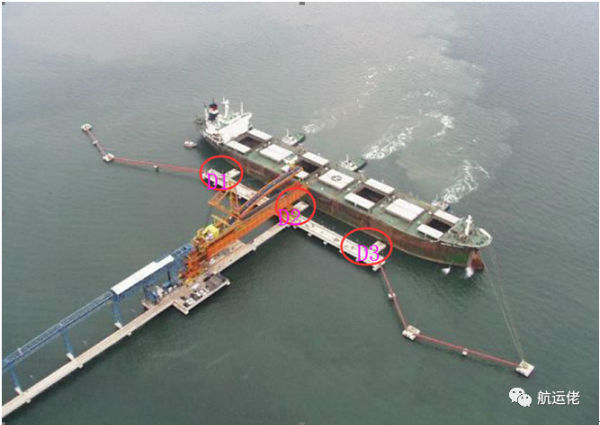
2007年7月19日,Pacific Fortune轮在靠泊过程中损坏了碰档D3,导致D3无法再使用。在对D3进行维修之前,港务局已制定了一项靠泊应急计划,要求船舶不要接触损坏的D3,同时四条拖船将用于靠泊作业。船舶的左锚将用于辅助靠泊作业,以限制与缆桩的距离并降低船舶靠泊的速度。在靠泊期间,船艏先与D1接触,因此靠泊船必须由船尾以一定角度接近泊位,以允许其右舷侧向后接触D1。一旦与D1接触,右舷侧将接触D2,然后船舶将被安全地系泊。虽然D3需要修理,但实际上在2007年并没有修好。船舶继续按应急计划来靠泊,2007年7月20日至12月8日期间,约有73条船靠泊作业,其中46条为好望角型船。
2007年12月8日,Nordstar轮在靠泊期间对D2造成损坏。Vine轮的出租人主张,认为损坏是由于泊位不安全造成的。承租人表示,这是由于Nordstar轮在靠泊中的疏忽引起的。Vine轮于2008年1月8日抵达港口,并在0038递交了NOR。港务局于1月12日10时20分批准了通关,该船直到2月15日才靠泊装货。当D2于2007年12月8日被Nordstar轮损坏时,泊位再也无法使用,维修D3变得势在必行。D3的维修于2008年1月7日开始,从而导致Vine轮靠泊延迟。如果没有发生Nordstar轮的事件,那么Vine轮的靠泊就不会有任何延误。Vine轮的出租人于是找承租人索赔约500万美元的滞期费。
合同的相关条款如下,其中装货港描述为:
1 or 2 safe berths, 1 safe port Itaguai,
第4.1条关于NOR的规定如下:
4.1 Notice ofReadiness (NOR) may be tendered after arrival of the vessel at Loading Port, at any time, provided that the vessel is cleared by the Port Authorities.
第5.10条关于装卸时间计算的规定如下:
5.10 Time lost as a result of all or any of the causes hereunder shall not be computed as laytime, unless vessel is already on demurrage:
(viii) Partialor Total interruptions on railways or port;
(ix) Any causeof whatsoever kindor nature, beyond the control of Seller, preventing cargo preparation, loading or berthing of thevessel.
争议的主要焦点有以下三个需要法院判定。
(1) the date onwhich laytime commenced;
(2) whether thedelay in berthing counted as laytime; and
(3) if thedelay in berthing did count as laytime, whether the cause of that delay was abreach by the charterers of their obligation to nominate a safe berth.
关于NOR的有效性及Laytime的起算问题,商事法院的Teare法官认为,NOR于2008年1月8日0038递交,在1月12日1020获得清关许可;虽然合同规定NOR必须得在清关后递交,但是在SOF上,已经清晰显示在1月8日的0038已经被接受(accepted),因此CPBS已经弃权,装卸时间因此从1月8日的0038开始起算。
关于这个“accepted”的解释问题,可以参之前The“Happy Day”案,一旦接受,那么弃权及禁反言将适用。
对于5.10条款中(viii) Partial or Total interruptions on railwaysor port 的解释问,出租人的代表律师区分了对港口业务的偶然干扰和预先计划的维修。但Teare法官不认为港口作业中断的概念要求中断是偶然的。“事故”的概念,即所依赖的另一个例外,显而易见。特定泊位的作业中断可能有几个原因,这可能是由于需要调查刚刚由船舶造成的泊位损坏。一旦决定修复损坏的泊位,作业可能会中断,同时因为正在进行维修。但是,每个都是特定泊位的作业中断。Teare法官不相信“中断”的普通含义应该局限于港口未事先计划的中断。
关于“中断”的含义,Teare法官认为没有被提及任何权威,但上诉法院在两个涉及“hindrances”和“breakdown”的滞期费案件中的做法与他的做法一致。因此,在Navrom v Callitsis Ship Management SA(The Radauti)[1988]2 Lloyd's Rep 416 案中第420页,“障碍”这个词被赋予了它的普通含义,尽管某种程度的障碍是不可避免的。同样,在PortolanaCompania Naviera Ltd v. Vitol SA Inc(TheAfrapearl)[2004] 2 Lloyd's Rep 305 案中,第311至314页中,“故障”一词与其原因形成对比,据说这是无关紧要的。有人认为,有一段时间,一个海豹(遭遇崩溃)的缺陷“是港口的事态的一部分,或者不是偶然的,或者是超出当事人的预期目的被视为细分”,但上诉法院不接受这一论点。因此,Teare法官认为中断不一定是偶然的。
Teare法官认为对逻辑变更的提及并不涉及标准条款的纳入,而是与较早的Vine轮的合约条款的纳入有关。无论如何,Teare法官都不相信将“Seller”改为“Charterer”是合乎逻辑且不可避免的。如果租船合同下的装载是在货物卖方的全资子公司经营的泊位上进行的,则有一项条款规定,由于不在卖方控制范围内的原因造成的损失时间不计算装卸时间。
Teare法官认为每个子条款都应该赋予其一般含义,并且没有充分理由,在没有明显意图的条款(ix)中“beyond the control of the Sellers不受卖方控制”这一短语的情况下,扩展到每个其他子条款,将该短语视为延伸到每个其他子条款。
Teare法官认为,租船合同必须按照Hoffmann勋爵在Investors Compensation Scheme Ltd v West BromwichBuilding Society [1998] 1 WLR 896案中所总结的原则来解释,文件(或任何其他话语)向合理的人传达的含义与其词语的含义不同。措辞的意义是词典和语法的问题;该文件的含义是,在相关背景下使用这些措辞的各方将可被合理地理解其所指。
The charterparty must, of course, be construed in accordance with the principlessummarised by Lord Hoffmann in Investors Compensation Scheme Ltd v WestBromwich Building Society [1998] 1 WLR 896, one of which is:
"The meaning which a document (or any other utterance) would convey to a reasonableman is not the same thing as the meaning of its words. The meaning of words isa matter of dictionaries and grammars; the meaning of the document is what theparties using those words against the relevant background would reasonably have been understood to mean."
在这种情况下,Teare法官认为第5.10条的合理理解是指如果当事人打算让原因必须超出卖方的控制范围,他们就会明确表达这一意图。他们这样做只是针对第(ix)款中提到的原因。Teare法官不认为这样的解释藐视商业常识,尽管在一个条款中也存在商业常识,只允许依赖于卖方无法控制的事件(或者,如在The Cape Equinox案中,超出收货人控制)。
In those circumstances I consider that clause 5.10 would be reasonably understood tomean that where the parties intended that the cause must be beyond the controlof the seller, they made that intention clear. They did so only with regard tothe cause named in sub-clause (ix). I do not consider that such a construction flouts business common sense notwithstanding that there would also be business common sense in a clause which only permitted reliance upon events which werenot beyond the control of the seller (or, as in The Cape Equinox, beyond the control of the consignee).
而关于中断是否必须在承租人的控制之外,Teare法官认为,租船合同规定承租人有责任装载货物并在装卸时间许可的期内这样做。泊位由CPBS运营,而不是由承租人运营。因此,承租人必须将其履行职责委托给CPBS。这是他们履行装载货物职责的唯一途径。因此,在出租人和承租人之间,CPBS受承租人的控制。然而,承租人委托给CPBS的义务是在于2008年1月8日发出准备通知时,需要给Vine轮装载铁矿石的义务。Teare法官接受如果在这样的装载过程中CPBS延迟完成装载,承租人不得说延误超出了他们的控制范围。但这并不意味着早先在2007年11月未能修复D3必须归因于承租人。如果在该日期之前未能修复D3,则CPBS没有履行由承租人所委托给他们的职责,或未履行职责。
Teare法官认为并非绝对有必要决定第5.10条所列的每项事件是否必须超出承租人的控制范围。但是,如果认为部分中断超出承租人的控制是错误的,将就先前的问题陈述他的意见,即第5.10条所列的事件是否必须超出承租人的控制范围。
It is therefore not strictly necessary for me to decide whether each event listed in clause 5.10 must be beyond the control of the charterers. However, in case I am wrongin concluding that the partial interruption was beyond the control of the charterers I shall state my opinion on the prior question whether the events listed in clause 5.10 must be beyond the control of the charterers.
Teare法官认为应该集中精力将第5.10条的适当解释纳入本租船合同,而不是关于其他涉及措辞不同的条款的意见。第5.10条特别针对一个地方的“控制”问题,即第(ix)款,虽然是对卖方而非承租人的控制。第5.10条的合理含义是,除了第(ix)款之外,控制不是子条款中任何原因的相关方面。当然,如果延迟是由于承租人可以违反租船合同规定的另一项义务,例如他有义务提名安全泊位,则会产生其他考虑因素。但是,由于所表达的理由,Teare法官不认为第5.10条的所有子条款都要求有关事件超出承租人的控制范围。因此,Teare法官认为,Vine轮靠泊的延误是由于“港口部分中断”造成的。
对于"Accident at the mines, railways or ports",矿山,铁路或港口的事故问题,Teare法官认为由于持续需要修复D3和Nordstar轮所造成的事故,因此在2008年1月给Vine轮靠泊造成了时间延误。维修的持续需要没有,也没有被证明是一次事故。在这种情况下,承租人无法将时间损失引入到事故例外中,因为失去时间的两个有效原因并不是事故。
I have therefore concluded that time was lost in berthing Vine in January 2008 by the continuing need to repair D3 and by the Nordstar accident. The continuing needto repair was not, or has not been shown to be, an accident. In those circumstances the charterers are unable to bring the loss of time within the accident exception because one of the two effective causes of the lost time was not an accident.
而对于5.10条(ix) 款"Any cause of whatsoever kind or nature, beyond the control of Seller, preventing cargo preparation,loading or berthing of vessel"的解释问题,Teare法官认为由于前面所述的理由,承租人无法证明2008年1月的损失时间超出了卖方的控制范围。“卖方”是Vale SA,泊位由其子公司CPBS运营。没有证据表明如果CPBS希望这样做,CPBS将无法在2007年修复泊位。
For the reasons given above in paras 44 to 56 thecharterers are unable to show that the time lost in January 2008 was beyond thecontrol of the seller. The "Seller" was Vale SA and the berth was operated by its subsidiary CPBS. There is no evidence that CPBS could not have repaired the berth in 2007 had it wished to do so.
该条款中,如之前多篇文章提到“whatsoever”的解释问题,承租人对于造成Vine轮靠泊延误的众多不管类似还是不同的都可以寻求免责;但是后半句关键的措辞为“Seller”,而非“charterers”,从而承租人未能证明对于造成延误的主要原因,泊位的修复问题不受CPBS控制。
然而,合约的解释,基本原则之一就是不能孤立地看待单独某个条款,应该将合同当作一个整体来看待。对于“1 or 2 safe berths, 1 safe port Itaguai, Brazil, always afloat”的描述,当事人对于该条所规定的泊位,港口安全保证没有异议。
Teare法官认为承租人于2007年12月3日或4日保证CPB泊位对Vine轮的挂靠预期是安全的。出租人主张说该泊位不安全,并且由于这种不安全的原因导致了Nordstar轮事故的发生,这反过来导致了Vine轮靠泊的延迟。Teare法官认为安全泊位保证的这种有点不同寻常的使用,将保证适用于与船舶以外有关的事件,并未受到法律质疑。
The charterers therefore warranted on 3 or 4 December 2007 that the CPBS berth was prospectively safe for Vine's expected visit. The owners said that it was not safe and that as a result of that unsafety the Nordstar incident was caused which in turn led to delay in berthing Vine. This somewhat unusual use of the safe berth warranty, which applied the warranty to events concerning a vessel other than that in respect of which the warranty was given, was not challenged as a matter of law.
关于泊位的设置问题,Teare法官认为即是指港口或泊位中用于确保船舶可以到达,使用并安全返回的系统,是安全的一个重要方面。可参见Kodros Shipping Corporation v EmpresaCubana de Fletes(TheEvia)(No 2)[1982] 1 Lloyd's Rep.334案。在本案中,据说该设置在若干方面存在缺陷。
(i)没有办法告知船长D3有潜在的危险,D2不足以接收来自好望角型散货船的第一次接触,而系泊计划首先要先靠D1。
(ii)引航员无法意识到D2不足以接收来自好望角型散货船的第一次接触,因此这是首先靠D1的另一个原因。
(iii)引航员对应急计划不满意并决心实施。
(iv)当船舶靠近泊位时,没有向码头上的船舶提供有关船舶的位置和路线的指引。
The"set-up" in the berth, namely the system in the port or berth forensuring that vessels may reach, use it and return from it in safety, is anessential aspect of safety; see Kodros Shipping Corporation v Empresa Cubana deFletes (The Evia) (No 2) [1982] 1 Lloyd's Rep 334 at page 338 quoted in TheCarnival.
IMO安全装载和卸载散货船的操作规范(第A.862(20)号决议)规定,码头应尽快给船舶“船长可能需要注意的泊位或码头的特征”,包括固定和移动障碍物,挡泥板,护柱和系泊设施的位置;见第3.3.1(3)条。D3是一个潜在的危险,D2不足以接收来自好望角型散货船的第一次接触,系泊计划首先联系D1是CPBS泊位的特征。Teare法官认为应该是在应急计划实施期间停泊的那些好望角型船舶的船长所知悉。没有这些知识,船长将无法安全靠泊。引航员可能具有这种知识的事实并没有减少船长具有这种知识的重要性。因为船长负责安全靠泊他的船舶,即使他可能会被引航员告知。
Teare法官认为没有证据表明任何制度使船长了解这些事项。通知船长的显而易见的人将是引航员,但来自Nordstar轮的船长和引航员的证据并未表明引航员在停泊前将此类信息传递给船长。因此,船长和引航员都没有参考在靠泊之前由引航员传达的这种信息。当然,船长在靠泊期间可能会观察到D3被损坏(正如Cape Stork轮的船长所做的那样),但为时已晚,无论如何他都不会意识到应急计划和D2的较小能力,除非通知他们的引航员。Teare法官因此认为在靠泊之前没有系统可以告知好望角型船舶的船长这些情况。
There is no evidence of any system whereby masters were made aware of these matters. The obvious person to inform the master would be the pilot but the evidence fromthe master and pilot of Nordstar does not suggest that such information was passed on by the pilot to the master prior to berthing. Thus neither the master nor the pilot made reference to such information being communicated by thepilot prior to the berthing. Of course a master may observe during berthingthat D3 is damaged (as the master of Cape Stork did) but that istoo late and in any event he would remain unaware of the contingency plan andthe lesser capacity of D2 unless informed of those matters by the pilot. I find that there was no system where by masters of Capesize vessels were informed of these matters prior to berthing.
因此,Teare法官得出结论,在Nordstar轮事件发生前不久,在泊位被提名时,CPBS泊位的“设置”在两个方面是不安全的。首先,没有任何系统可以告知Vine轮的船长,D3是潜在的危险,D2不足以接收来自好望角型散货船的第一次接触,系泊计划首先要靠D1。其次,引航员没有意识到D2首先接触它的危险。泊位设置中的这些缺陷使得船尾靠泊的安全执行不太可能发生。
I therefore conclude that the "set-up" at the CPBS berth at the time when the berth was nominated, shortly before the Nordstar incident, was unsafe in tworespects. First, there was no system for advising the master of Vine that D3 was a potential hazard, that D2 was not adequate to receive the first contact from a Capesize bulk carrier and that the mooring plan was to contact D1 first.Second, the pilots were not aware of the danger to D2 in contacting it first. These defects in the set-up of the berth made the safe execution of a stern-on berthing less likely than it would otherwise have been.
Teare法官认为CPBS泊位不安全。需要停泊在D1上需要的不仅仅是普通的导航和航海技术,以避免与D3接触并首次接触D2的危险。由于没有一个系统可以告知船长和引航员他们需要知道的所有泊位,因此不太可能安全地执行所需的船尾靠泊。D2的损坏风险因先前受到过大的力量而增加。
I conclude that the CPBS berth was unsafe. The need to berth stern on to D1 required more than ordinary navigation and seamanship to avoid the danger of any contact with D3and first contact with D2. The absence of a system for informing masters and pilots of all that they required to know of the berth made it less likely that the required stern-on berthing would be safely executed. The risk of damage to D2was increased by the circumstance that it had previously been subject to excessive force.
Teare法官认为因此,出租人的滞期费索赔必须成功,理由是靠泊的延误是由于泊位的不安全造成的,而滞期费率是商定的延误损害赔偿率。而在卸货港速遣得归于承租人,据Teare法官所知,这是无争议的。Teare法官认为,各方将能够就将作出何种判决的数额达成一致。
The owners' claim must therefore succeed on the grounds that the delay in berthing was caused by the unsafety of the berth and that the demurrage rate is the agreed rate of damages for delay. Credit must be given for the charterers' despatch claim at the discharge port which I understand is not in dispute. The parties will, I assume, be able to agree the sum in respect of which judgment will be given.
在本案中,虽然承租人可以凭借例外条款免除船舶靠泊延误的责任,延误的时间可扣除不计算装卸时间;但是由于违反了安全泊位安全港口的责任,Teare法官认定靠泊的延误是由于泊位的不安全造成的,从而判承租人得赔偿出租人损失,所有延误的时间即以约定的滞期费率水平计算。本案对于港口设置,信息系统方面Teare法官也作了判决。如果一个港口没有任何系统可以告知船长,泊位或锚地存在危险,那么则会导致该港口不安全。这点和之前说过的,如果在锚地中有废弃的锚链,而这个港口没有必要的警告系统,未能给予船长必要的信息,从而导致船长在废弃的锚链上抛锚导致锚链被缠绕收不起来,那么将导致该锚地不安全。
总结:
从以上所介绍的可以看出,在航运日常实务中,存在非常多的争议,而这一切往往取决于本身的合同条款,合同条款的好坏直接影响最终结果。承租人如果想依赖这种例外来免除责任的话,那么这些条款的措辞应该异常清晰明确。如上议院的Dunedin勋爵在Brightman & Co v Bungey Born Ltda Sociedad (1925) 22 Ll L Rep 395 (HL)中,在第396页判决书中所说:在这一点上,我完全同意Scrutton勋爵的判决;我只是重复他所说的那么明确的解释,即绝对权威的一般规则是,如果你想做一个例外适用于提供与装载本身不同的货物,你必须用清晰明确的言辞这样做,以免含糊不清。
On this point Iam entirely in agreement with the judgment of Scrutton, L.J.; and I am only repeating what he has so clearly explained when I say that the general rule inabsolutely authoritative to the effect that if you wish to make an exception apply to the providing of cargo as distinguished from the loading proper, you must do so in words so clear as to admit of no ambiguity.
在该案中,Sumner勋爵在第400页判决书中说到,既定规则,在租船合同中,承租人有义务提供货物并准备好在装货地点装货,这种准则是绝对的,除非是明确的措辞或必要的暗示,不是人为的或任意的,否则不会受到例外条款的影响。这与船东在提单中的海上风险例外可以申请解除他之前提供适航船舶的义务相关。它源于合同的性质,对实际分配其履行所涉及的风险是必要的。
The established rule, that in charter-parties the charterer's obligation to provide cargo and have it ready for loading at the place of loading is prima facie an absoluteone and is not affected by clauses of exception as to lay days unless by express language or necessary implication, is not artificial or arbitrary. It is correlative to the shipowner's obligation to provide a seaworthy ship before an exception of marine perils in a bill of lading can apply to relieve him. It arises out of the nature of the contract and is necessary to the practicaldistribution of the risks involved in its performance.
期租合同下的情况也一样,在Royal Greek Government v. Minister of Transport(1948) 82 Ll.L. Rep. 196案中,Bucknill勋爵在第199页判决书中说到,最基本的原则,在解释租约条款的时候,除非能租家能把他引入到停租条款,要不就需为使用船舶支付租金。此外条款中模糊的字眼将作出对船东有利,因为租家想剥夺船东获取租金的权利。
The cardinal rule in interpreting such a charter-party as this, is that the charterers will pay hire for the use of the ship unless he can bring himself within the exceptions. I think he must bring himself clearly within theexceptions. If there is a doubt as what the words means, then I think those words must be read in favour of the Owners because the charterers is attempting to cut down the Owners’ right to hire.
法官Cooke认为许多权威已经表明,除非租家能能把那些事引入到停租条款可扣除的情况,要不租金得一直连续不间断支付。对于例外事项有模糊的地方将作出对船东有利的解释。
As many authorities state, hire is payable continuously unless the Charterers can bring themselves within an exception, the onus being on the Charterers to do so. Doubt as to the meaning of exceptions is to be resolved in favour of the Owners.
英国作为判例法国家,历经数百年所积淀下来的无数先例,不断地被后来的法官修正完善。普通法的合约解释是连续性的而不是变化,英国法律作为商业事宜选择法律制度的一个吸引力在于其稳定性和连续性,特别是在合约解释方面。诚如Hodge勋爵在2017年的最高法院案例Wood v. Capita案中所说:
The recent history of the common law of contractual interpretation is one of continuity rather than change. One of the attractions of English law as a legal system of choice in commercial matters is its stability and continuity, particularly in contractual interpretation.
Neuberger勋爵在本案中所归纳的6个观点对于合同的解释,尤其是商业合同方面是非常重要的参考依据。与Rainy sky案不同的是,本案的具体条款的解释并没有异议,因此法官遵循英国法一贯以来的解释原则,文本释义,而非商业合理性。在合约解释的过程中,只有当合同的措辞存在多种解释的时候,才需要考虑商业合理性和背景环境。如果该条款的措辞足够清晰明确,那不管结果荒谬与否,当事人将不得不接受。如Sumption勋爵在Krys and othersvKBC Partners LP and others案中,第15段判决所说:
Even if the Board regarded these consequences as absurd, such arguments have limited forcein the face of the clear language of the articles.
即使委员会认为这些后果是荒谬的,但这些辩解在文章的明确语言面前效果甚微。
Sumption在牛津大学的演讲中也再次提到该案的情况。
In Krys v KBCPartners [2015] UKPC 46, a majority of the Privy Council declined to departfrom the natural meaning of the language simply because the result might be regarded as one-sided or unfair, and suggested that in the face of sufficiently clear language even an absurd result might have to be accepted.
如果只是因为结果可能片面或不公平,枢密院的大多数法官都拒绝违背该语言的自然含义;并认为,面对足够清晰的语言,纵然结果是荒谬的也将不得不被接受。
又如在Wood v Capita Insurance Services Limited案中,Hodge勋爵在第13段判决书中说到,文本主义和语境主义并不是在专属占领合同解释领域的斗争中的矛盾模式。相反,律师和法官在解释任何合同时,都可以用它们作为工具来确定当事人选择用来表达其选择的措辞的客观含义。
Textualism and contextualism are conflicting paradigms in a battle for exclusive occupation of the field of contractual interpretation. Rather, the lawyer and the judge, when interpreting any contract, can use them as tools to ascertain the objective meaning of the language which the parties have chosen to express their agreement.
同时在第14段判决中说到,Rainy sky 和本案,在合同解释的方法上说了同样的事。
在日常中,经常碰到有人问问题只说争议情况,然后要答案;其实这是强人所难。连合同条款都不清楚,如何去解释合同。最后以Hodge勋爵第10段的判决作为本文的结尾:
The court’s task is to ascertain the objective meaning of the language which the parties have chosen to express their agreement. It has long been accepted that this is not a literalist exercise focused solely on a parsing of the wording of the particular clause but that the court must consider the contract as a whole and, depending on the nature,formality and quality of drafting of the contract, give more or less weight to elements of the wider context in reaching its view as to that objective meaning.
法院的任务是确定当事方选择用来表达其协议的措辞的客观含义。长久以来,人们已经认识到,这不是一个纯粹以解释特定条款的措辞为目的的字面意义上的练习,而是法院必须将合同视为一个整体,并根据合同起草的性质,形式和质量或多或少地重视更广泛的内容,以达到其客观意义。
修改完成于2018.10.27
海运圈聚焦专栏作者 Alex (微信公众号 航运佬)

 2018-10-27
2018-10-27 1272
1272 




